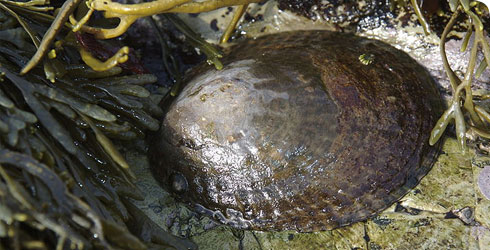Lottia gigantea (owl limpet)
Lottia gigantea, the owl limpet, is the largest patellogastropod in North America, capable of reaching lengths of over 110mm.
L. gigantea is commonly found in the middle to high rocky intertidal zone along the Pacific coast of California and Baja California.
L. gigantea adults are easily identified from other limpet species due to their large size; juveniles (<20mm) can be more difficult to distinguish.
Species detail
Lottia gigantea is a protandric hermaphrodite, with all individuals starting their reproductive lives as male and changing sex to become female as they grow older and larger (Wright and Lindberg 1982, Wright 1988, 1989).
L. gigantea individuals are capable of reaching ages of about 20 years (Fenberg 2008).
L. gigantea has been size-selectively harvested by humans since prehistoric times (Lindberg et al. 1998) and continues today throughout much of its geographic range.
-

Biology
Learn about the size and growth patterns of Lottia gigantea, get an overview of the life cycle of the species and find out what research has been undertaken to discover more about its genetic history.
-

Reproduction
Adults undergo a single spawning event in the winter months, typically in January or February.Larvae entrained within coastal currents could potentially be transported long distances (hundreds of kilometers) before settling in the rocky intertidal.
-

Behaviour
Female owl limpets are highly territorial and protective of their feeding spaces, resulting in the males (and some small females) residing away from dominant females' territories. Find out more about the behaviour of this species and discover the associations it has with other species.
-

Distribution and abundance
Discover the areas of the world where owl limpets are found and at which point in their range they are most abundant.
-

References
Get reference information for Lottia gigantea.
Images
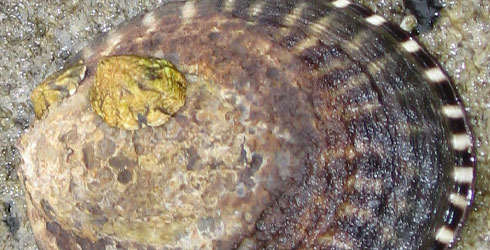
Lottia gigantea
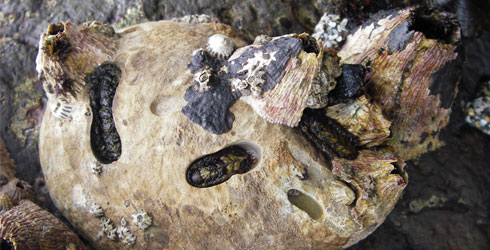
Chiton limpet
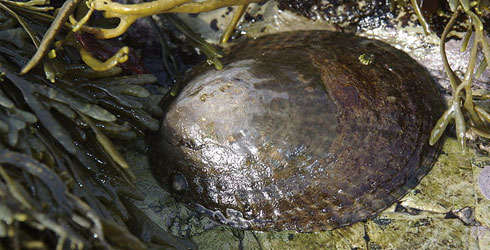
Lottia gigantea
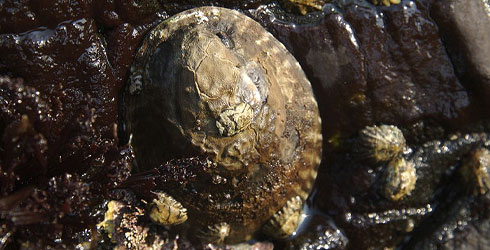
Lottia gigantea
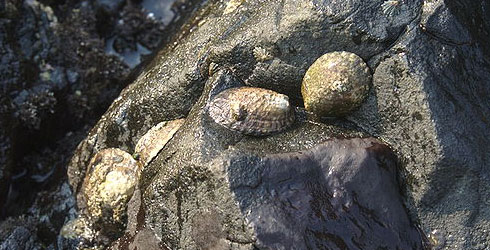
Lottia gigantea
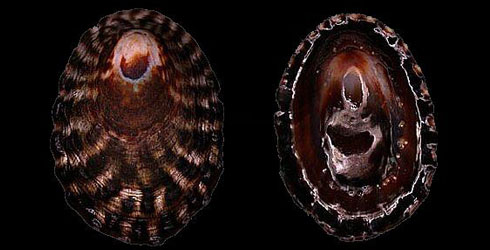
Lottia gigantea
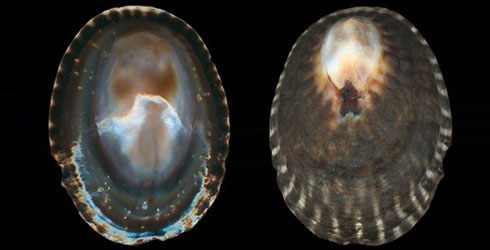
Lottia gigantea
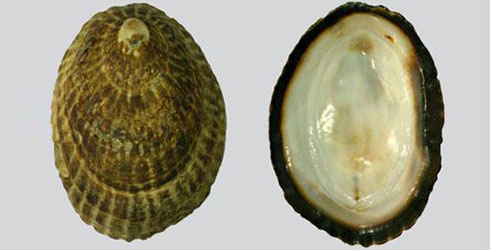
Lottia gigantea
Author
Dr Phillip Fenberg, Post doctoral scientist, Department of Palaeontology.
